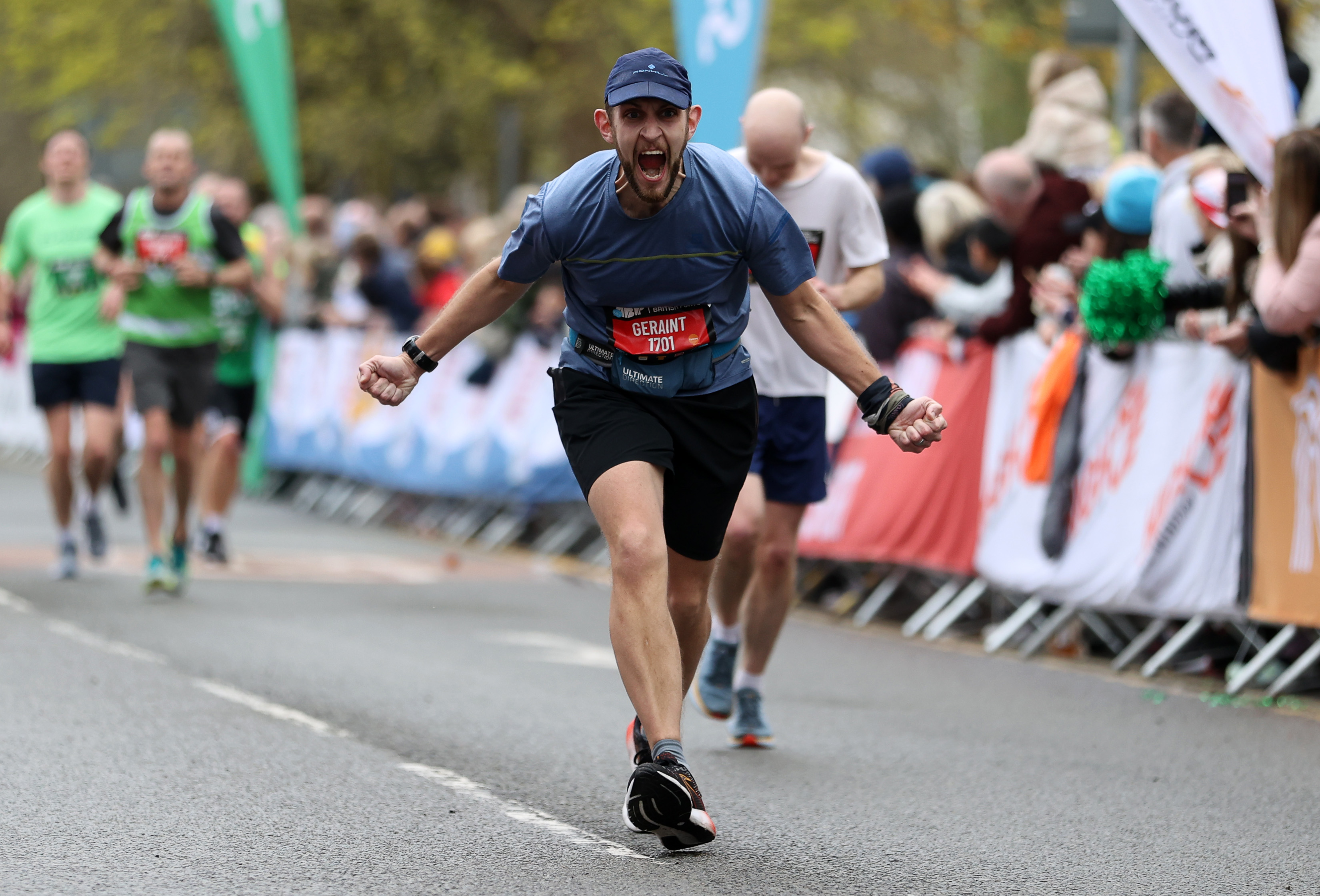With just three months to go until the starting gun fires at the ABP Newport Wales Marathon, it’s important to make these final weeks of training count.
If you put in the hard work now, just think of how good you’ll feel when you make it to the finish line.
But if you’re not sure of where to start, Run 4 Wales’ Race Director, Steve Brace, is here to help. Steve is a double Olympian having represented Great Britain in the men’s marathon in the 1992 and 1996 summer Olympics. He’s also a former winner of the Paris and Berlin Marathon and ran his marathon PB of 2:10:35 in Houston in 1996.
He shares his top marathon training tips below:
Get a solid training plan: It’s important to follow a training plan that is right for you, making sure you’re putting in enough work but not overdoing it and causing injury. Look to increase your total mileage steadily (by no more than 10%) each week with a mixture of easy and long runs, tempo sessions and intervals. Training blocks of six weeks with a lighter week in between works well. If you need some help in planning your runs, our partner Coopah provides individually tailored training plans suited to your goals. (Get a two-week free trial with code: R4W)
Don’t forget to stretch and condition: While it’s important to get time in on your feet, it’s just as important to carry out conditioning exercises and stretch to look after your muscles. Bodyweight conditioning doesn’t need to be complicated and a routine featuring exercises like squats, lunges, deadlifts, push-ups and planks is ideal. You could even try doing some calf raises while brushing your teeth or squat while waiting for the kettle to boil. Stretching after your sessions is also essential to help aid muscle recovery.
Remember rest days are important: Rest days allow our bodies to repair and help us to mentally recover from our training. They are a really important part of any training plan and a chance for you to relax and get more sleep. For many it can be hard to not do anything at all, so if you really have to do some level of activity, low impact and low intensity exercises such as swimming, yoga and walking are best. Remember to also to stay well hydrated and keep fuelling on your rest day too, as your body will need it for your next training session.
Stay fuelled and hydrated: During a marathon, more than two thirds of your energy comes from carbohydrates so ensuring your body has enough energy is vital in completing it. To avoid hitting the ‘wall’ you need to keep your carbohydrate stores topped up. For any runs longer than 90 minutes you should start taking on fuel from 45 minutes and then every 45 minutes going forward. It’s important to try different foods and products to understand what works best for you, and don’t try anything new on race day. Instead trial the products that are being provided at the event prior to racing to know if it agrees with your body. At the Newport Marathon we provide water, High 5 energy gels as well as isotonic sports drinks. Sipping water throughout your run is also important in helping you stay hydrated. Day to day you should also ensure you’re keeping your water levels topped up and getting enough carbohydrates, protein and good fats in your diet too.
Planning your longest run: You don’t have to run the whole 26.2 miles during your training. You should plan to do your longest training run about two weeks before race day. Your running ability will dictate how this should look. If you’re quite an advanced runner, look to bank around 20 miles. However, if this is one of your first marathons, time on your feet is more important than distance at this stage and you should look to run for 2-2.5 hours.
Take time to taper: You’ve put in all the hard work and with 2-3 weeks to go before the event it’s time to taper. It can be tempting to try and cram in extra sessions or tag on a few more miles, but this can cause more harm than good. After completing your longest run, the aim is to rest and recover so you can run on fresh legs. Instead, look to gradually decrease the volume and intensity of your training in the lead up to race day. Keep yourself well fuelled as your body repairs and look to start carb loading the week before the race.
Don’t let injury hold you back: Marathon training is a long and intense process and people, especially beginners, can sometimes pick up a niggle or injury. If this happens, don’t worry as, depending on its severity, it doesn’t necessarily mean you won’t make it to the finish line. Ice and heat the affected area but if it doesn’t get better after a couple of days, make sure to see an expert. Next come up with a plan. Cross-training, if it isn’t a tear, break or stress fracture, can help to keep your fitness up without aggravating the area and then build back up to running gradually. Be kind to yourself and remember if this event doesn’t seem achievable within the time frame, your hard work doesn’t have to go to waste, there will be other events you can enter.


